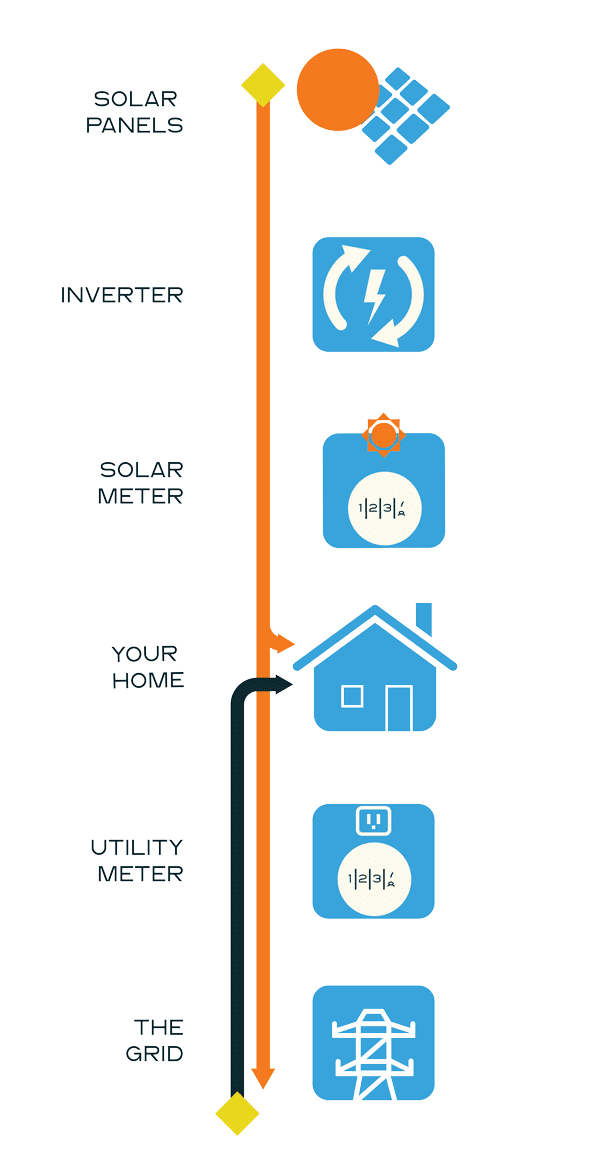
Learn – Net Metering
What is Net Metering?
Net metering is a utility billing mechanism that credits solar energy system owners for the electricity they add to the grid.
Here’s how it works:
01
Your solar panels generate electricity during the day.
02
If you produce more electricity than your building uses, the excess goes back to the utility grid.
03
You receive credit for extra kilowatts sent back to the grid.
04
You use those credits later—like at night or in winter—when your system isn’t producing as much.
This means you’re only billed for your “net” electricity usage over the course of the billing cycle, hence the term net metering.
Washington State Net Metering Policy Overview
Here’s what you need to know about Washington’s net metering policies:
Who’s eligible?
Residential, commercial, nonprofit, and government solar system owners with systems up to 100 kW in size.
How are credits calculated?
Utilities provide credit for kilowatts sent back to the grid.
What happens to unused credits?
Utilities provide credit for kilowatts sent back to the grid. Currently, those credits are valued at the full retail rate of electricity so as electricity rates go up, the value of your solar energy goes up as well.
What utilities offer net metering?
All major investor-owned and public utilities in Washington offer net metering, including:
- Puget Sound Energy (PSE)
- Seattle City Light
- Snohomish PUD
- Orcas Power & Light
Net Metering and the History of Solar Energy
To understand why net metering in Washington State is so important, it helps to look back at the history of solar energy.
Solar power has been around since the 1950s, when early photovoltaic cells were used in satellites and research applications. By the 1970s, as energy costs and environmental concerns rose, solar gained interest in residential and commercial settings. But it wasn’t until net metering laws were introduced—starting in the 1980s—that solar became truly accessible to everyday users.
Washington State adopted net metering in 1998, aligning with a national movement to support distributed renewable energy. Since then, tens of thousands of homes, schools, businesses, and public buildings across the state have gone solar with the support of strong net metering policy.
The Future of Net Metering in Washington
Puget Sound Energy has committed to accept new applications for the current 1:1 retail rate net metering policy through December 31, 2025 or until a new program is approved by state regulators, likely in 2026. It is unknown what the new policy will bring, though we expect it will provide a lower value for solar energy. Many states (and even some other utilities here in Washington State) have begun transitioning to different compensation structures that offer less-than-retail-value such as time-of-use rates or net billing
As a founding member company of WASEIA, Ecotech Solar has actively engaged with shaping energy policy at the state level since our early days. We’re dedicated to continuing to be a voice for fair, forward-thinking policies and incentives.
Get Started with Solar + Net Metering
At Ecotech Solar, we design high-performance solar systems that take full advantage of net metering in Washington State. Our local team handles everything—from design and permitting to utility coordination and long-term system monitoring.
Schedule a Free Solar Assessment to learn how much you can save with solar and net metering.
